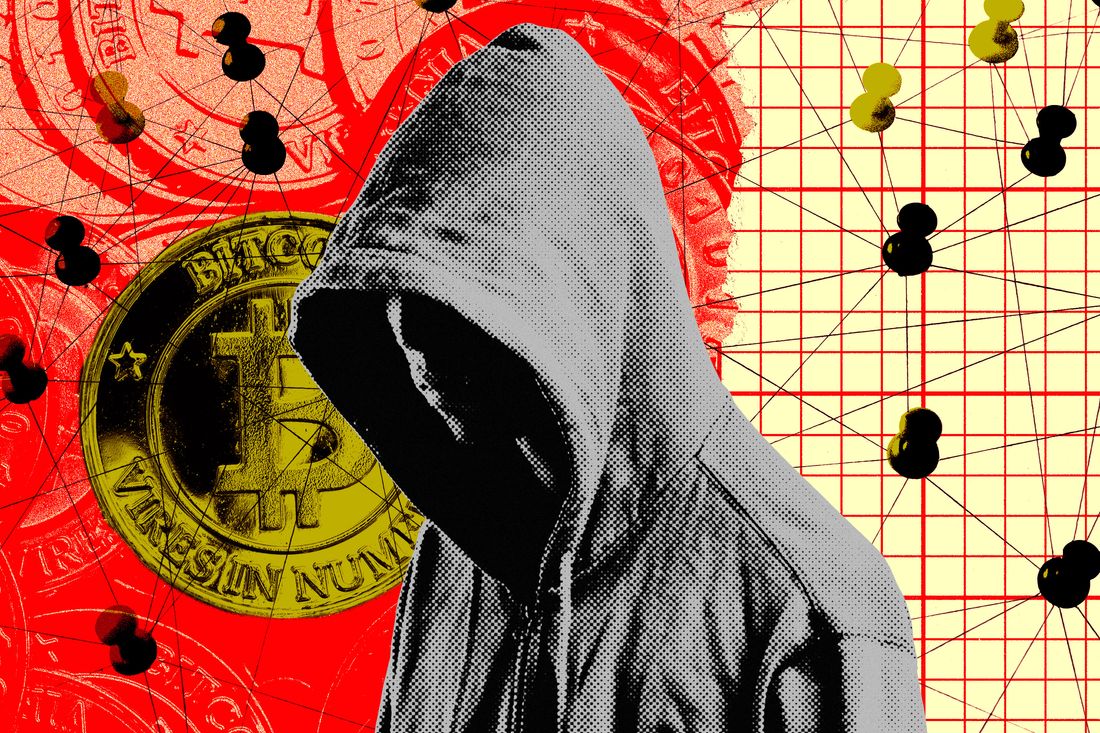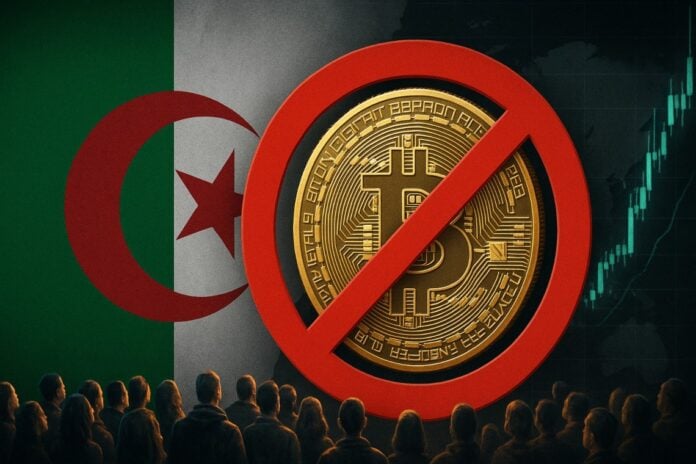Picture this: a country where owning a single Bitcoin could land you in jail. That’s the reality in Algeria as of July 2025, following a sweeping new law that bans all cryptocurrency activities. From trading to mining, even holding digital assets like Bitcoin or Ethereum is now a crime, with penalties that include up to a year in prison and fines as high as $7,700. Why has Algeria taken such a drastic step, and what does it mean for its citizens and the global crypto scene? Let’s dive into the details of this bold move and explore its ripple effects.
What’s Behind Algeria’s Crypto Crackdown?
On July 24, 2025, Algeria enacted Law No. 25-10, a game-changer that criminalizes every aspect of cryptocurrency use. This isn’t just a restriction—it’s a total blackout. The law targets buying, selling, holding, mining, and even promoting digital currencies, classifying them as financial assets under strict anti-money laundering (AML) and counter-terrorism financing (CTF) rules. The government argues this protects the nation’s financial system, but critics say it’s a step backward in a world embracing digital innovation.

A History of Crypto Skepticism
Algeria’s hostility toward crypto isn’t new. Since 2018, Article 117 of its Financial Law banned digital asset activities, citing risks to monetary sovereignty. Despite this, many Algerians used peer-to-peer platforms and VPNs to trade on global exchanges like Binance and Bybit. The new law doubles down, closing loopholes and introducing harsher penalties to stamp out these workarounds.
What Does the New Law Prohibit?
Law No. 25-10 leaves no room for ambiguity. Here’s what’s now illegal in Algeria:
- Owning Crypto: Holding Bitcoin, Ethereum, Tether, or any digital asset is a crime.
- Trading: Buying or selling crypto, even through foreign platforms, is prohibited.
- Mining: Operating crypto mining rigs, especially in southern Algeria where cheap electricity fueled growth, is outlawed.
- Digital Wallets: Using wallets like MetaMask or Trust Wallet is banned.
- Promotion: Advertising or discussing crypto publicly can lead to penalties.
Violators face 2 months to 1 year in prison and fines from 200,000 to 1,000,000 Algerian dinars ($1,540 to $7,700). In serious cases, like links to organized crime, both penalties apply.

Why Is Algeria Doing This?
The Algerian government cites several reasons for the ban, rooted in economic and security concerns:
Protecting Financial Stability
Algeria’s economy relies heavily on oil and gas, and the government fears crypto’s volatility could destabilize its currency, the dinar. Unregulated capital flows through crypto could also worsen inflation and currency devaluation.
Fighting Crime
Officials argue that crypto enables money laundering, tax evasion, and terrorism financing. By classifying digital assets as financial property, the law aligns with global standards set by the Financial Action Task Force (FATF), aiming to close loopholes exploited by bad actors.
Curbing Illegal Mining
In southern Algeria, low electricity costs attracted crypto miners, often operating off-grid with imported hardware. The government views this as a drain on resources and a source of untraceable income, prompting a crackdown.
How Will the Ban Be Enforced?
Algeria is gearing up for strict enforcement. The Bank of Algeria, Banking Commission, and security forces are coordinating to monitor both online and offline activities. This includes:
- Digital Surveillance: Tracking VPN usage to access platforms like Binance or OKX.
- Banking Restrictions: Blocking transactions linked to crypto exchanges.
- Physical Crackdowns: Targeting illegal mining operations and seizing equipment.
While some users may still try VPNs or peer-to-peer trading, the risk of prosecution is now significant, pushing crypto activity underground.
A Blow to Algeria’s Crypto Community
Algeria was once a rising star in the MENA region’s crypto scene, with a young, tech-savvy population driving adoption. Chainalysis ranked it among the top five fastest-growing crypto markets in 2024. The ban threatens to erase this progress, forcing enthusiasts to either stop or operate in secret, risking jail time.

Regional Contrast
While Algeria slams the door on crypto, its neighbors are opening up. Morocco is developing regulations, Tunisia has a blockchain sandbox, and Egypt allows licensed exchanges. This divergence could isolate Algeria from the global digital economy, stifling innovation and driving talent elsewhere.
Global Reactions and Implications
The crypto world is buzzing about Algeria’s move. Posts on X reflect mixed sentiments: some see it as a heavy-handed control tactic, while others acknowledge the government’s fraud concerns but criticize the ban’s scope. Analysts warn that outright bans rarely work—China’s 2021 crackdown pushed trading underground, and Nigeria’s 2021 restrictions failed to stop peer-to-peer activity. Algeria may face similar challenges.
A Missed Opportunity?
With over 40% of Algerians under 25 and many unbanked, crypto could have boosted financial inclusion. Instead, the ban risks alienating young innovators and pushing them toward black markets, where risks are higher and protections are nil.

What’s Next for Algeria and Crypto?
Algeria’s hardline stance sets it apart from global trends toward regulation, not prohibition. While the government aims to protect its economy, the ban may backfire by fostering an underground market that’s harder to control. For now, Algerian crypto users face a tough choice: abandon digital assets or navigate a high-risk legal landscape.
Can the Ban Be Bypassed?
Technically, VPNs and decentralized platforms could keep crypto alive in Algeria, but the legal consequences are now severe. As enforcement ramps up, the crypto community may shrink, with only the most determined operating in the shadows.
Conclusion: A Bold but Risky Move
Algeria’s crypto ban is a dramatic bid to control its financial future, but it comes at a cost. By outlawing a technology embraced worldwide, the country risks stifling innovation and isolating itself from the digital economy. For everyday Algerians, the message is clear: steer clear of crypto, or face the consequences. What do you think of Algeria’s approach? Share your thoughts in the comments!






















